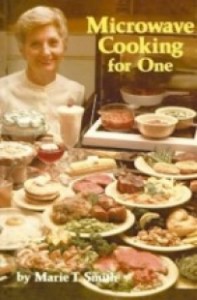Adapting Your Own Recipes to Microwave Cooking
We have receive quite a number of requests from readers for a chart that tells how to convert conventional cooking times to microwave cooking. Here is a sampling:
Unfortunately, there is no hard and fast rule for converting recipes. There is a little bit of experimentation involved in converting each recipe you attempt. It is best to start by learning a few recipes that are specifically written for the microwave oven. Once you've mastered a few of those recipes, you will be more comfortable adapting your favorite recipes to microwave cooking!
Just think of it! You can cook the same recipes you already enjoy faster in your microwave! When adapting your recipes:
- Try to find a microwave recipe that is similar to the recipe you want to adapt in terms of ingredients and proportions.
- Reduce the amount of liquid in the conventional recipe by about one-fourth because there is less evaporation in microwave cooking.
- Use no salt, or less salt. The microwave oven emphasizes the salt content in food, so recipes containing a conventional amount of salt will taste twice as salty.
- Reduce the amount of other seasonings too. Microwave cooking enhances other herbs and spices. Reduce by half the amount used, and then add more after cooking.
- Use deeper dishes than conventional cooking for more liquid based recipes like soups, cakes and sauces because these items increase in volume temporarily when microwave cooking.
- Foods containing liquid, sugar and fat cook faster. So reduce the cooking time by 1/4 of conventional cooking and then gradually increase until you obtain the desired result.
Don't be discouraged if your first attempt is not a glowing success. It takes time to learn how to cook in your microwave oven. Just like it took time for you to learn to use your computer. In the long run, it will be worth the effort! Just like your computer now saves you time in other areas of your life, your microwave will save you time in your kitchen!
Online Resources for Microwave Recipes
To help you get started, here are some online archives with substantial microwave recipes.
- Cooks.com — A recipe database of over One Million recipes, includes lots of microwave recipes.
- My Recipes offers microwave recipes that put dinner on the table quick on busy nights.

SHARE THIS PAGE: